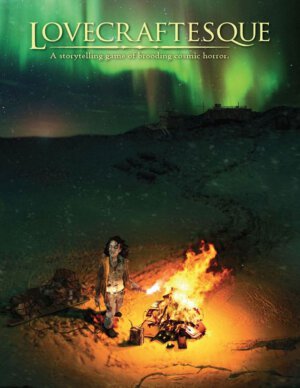
Publisher: Black Armada
Authors: Joshua Fox and Becky Annison
Artists: Nathan Paoletta and Robin Scott
Year: 2016
Genre: Cooperative horror storytelling game
Players: Best with two or more
Ages: 16+ (Just my opinion)
Pages: 180 pages
Retail Price: PDF $13.59 through DriveThruRPG
I admit this may be one of the most difficult reviews I’ve ever had to present. On one hand, Lovecrafteque is a product I suppose a lot of people obviously worked very hard to produce with an eye toward creating something truly unique. My interest was piqued when I saw some coverage on sites such as TheMarySue so this is a release I looked forward to diving into. What’s not to like about a new take on gaming in H.P. Lovecraft’s fictional universe?
On the other hand, after reading Lovecraftesque multiple times, I found the book continually leaving me with a palpable sour taste and a personal dislike for it as an overall gaming product. I would probably be better served by just taking a pass on doing a review (I’m never especially keen on taking money out of people’s mouths) but I tweeted a while back that I had picked up Lovecraftesque and really didn’t care for it and folks have messaged or emailed asking why. Rather than engaging in a ton of back and forth on Twitter, or through email, I felt it would better serve our audience to write this review.
Before I get into the nitty gritty regarding Lovecraftesque allow me to share some personal thoughts…
As someone who has been attending Gen Con since the days it was held in Milwaukee, I can’t tell you how much I love seeing the broadening of our hobby across a wide spectrum of gamers. Back in the day, the demographic of Gen Con attendees was probably in the neighborhood of 95% white male. If you happened to run across women, or anyone of color, your first thought might be that somehow they got lost on the way to view the world’s only polka escalator. No doubt I’m exaggerating a tiny bit with the above but the stark truth is commercialized table top gaming, from it’s early roots in the 1940s and 1950s through to the final years of the 20th century, was most assuredly a white boys’/mans’ world.
Today’s gaming spectrum, and damn near everything else in our society, happily continues to improve by way of an ever growing and diverse chorus. Sadly, gamers and game creators who fall outside the WASPy male prototype remain sorely underrepresented (and criminally underappreciated) in the hobby but we’ve come a long way from where gaming was when I first picked up a twenty sided die so there’s a little bit of light at the end of that tunnel. Sadder still is the sense shattering vocal minority who take to the interwebs to insult, harass, and threaten those they feel don’t belong participating in any part of geekdom. I don’t know where these clowns get the idea they own our hobbies (or that they have some inalienable right to try to make other folk’s lives suck) but we’re seeing more and more people ignoring the negativity to boldly unleash creativity into the world.
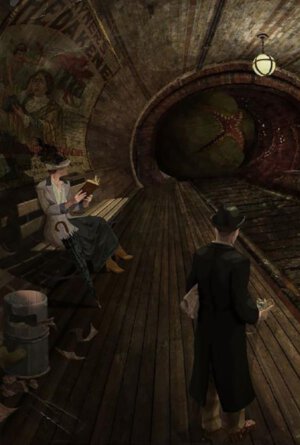
By this point you’re reading this and probably saying to yourself, “That’s all fine and good Jeff but isn’t this a game review? Isn’t this the sort of stuff you’d write for an op-ed? I came here for a review and you’re feeding me this? I’m feeling kind of cheated.”
Well, dear reader, I’ve pulled a bit of the same sort of fast one on you as the authors of Lovecraftesque pulled on me; you came here expecting a game review only to end up reading what probably comes accross as some sort of self-serving, back patting of myself regarding openmindedness and inclusiveness while I, in turn, came to Lovecraftesque expecting to read about a collaborative Mythos game only to come away feeling lectured to, preached at, and somewhat insulted.
Let’s start from the top shall we?
Lovecraftesque is pitched as the “GMless storytelling game of brooding cosmic horror you’ve been waiting for.” So far, so good as I happen to like collaborative story games along the lines of Fiasco and long time visitors already know if there’s a whiff of the Mythos with a game I’m always interested in getting a closer peek. I can’t say I’ve necessarily “been waiting” for a release of this sort but I’ve paid my money so I’ll take my chances.
I won’t rehashing all the mechanics of Lovecraftesque in great detail but suffice to say the gameplay breaks down into a series of scenes. During a scene, each of the players will take on one of three roles: the narrator, the witness, or the watcher(s); anyone who isn’t the narrator or witness is considered a watcher in the scene so there can be multiple watchers at one time. The narrator is essentially tasked with all the creative heavy lifting for the scene by describing what’s taking place, where it’s taking place, who is present, and so forth. One of the most important aspects of narrating a scene is to reveal a set number of clues in order to build the story, drive the action, and segue into the next scene.
The witness takes on the role of the main character of the story. Lovecraftesque stories focus on a single character, very much in tune with the original Mythos tales, and the witness provides a first person account while also asking questions of the narrator in regards to the environment as well as aiming to reveal more clues. The witness also tries to elaborate on the background and personality of the protagonist. Interestingly, the narrator may choose to override whatever actions the witness chooses to take since, well, the narrator is in charge of that scene.
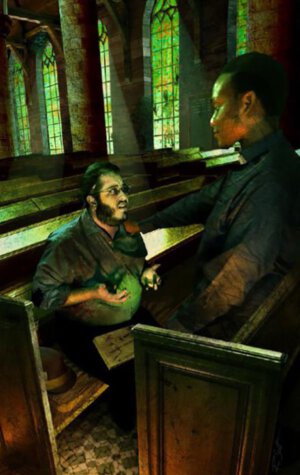
A game consists of eight scenes (broken into two parts), an extended scene known as the Journey Into Darkness, a climactic scene which is called The Final Horror and an epilogue to wrap things up. You’ll want to keep in mind you can’t reveal or discuss anything remotely supernatural or Mythos related until The Final Horror. I’ll also point out the story’s epic reveal, or Final Horror, falls squarely to the imagination of the narrator of that scene.
I’m simplifying the game mechanics quite a bit since there’s all sorts of rules regarding who does what, when they can do it, getting to the end of a scene and so on. Honestly, it’s really rather convoluted and goes way of the tracks in over complicating what should be a relatively simply story telling game. Lovecraftesque even utilizes many concepts we’ve seen before in games like Fiasco, Heroine, and even The Final Girl. Sure the supposed classic Mythos trappings (of which there are none) would be a different wrinkle but as far as the game under the hood? There’s nothing new here and what there is is pieced together so poorly it barely makes sense. Which leads to two of my biggest issues with the game itself.
Lovecraftesque is one of those games which is much more interesting in theory than actual execution. Getting together around the table with friends to craft a Lovecraftian tale should make for an entertaining evening but Lovecraftesque’s assigned roles are too restraining, with far too much creative responsibility and final authority given to the narrator of the current scene. You aren’t personally thrilled in the direction the scenario is going? Don’t worry. Once you get to be narrator you can do just about whatever you please. Plus don’t forget only the narrator of The Final Horror gets to determine what the big payoff is at the end. It’s possible you’ll find yourself investing hours into a game session only to find the finale your group has struggled to reach lands with a resounding thud.
Another big part of the design problem is that Lovecraftesque only focuses on a lone character. While the single protagonist is certainly in the vein of H.P. Lovecraft’s stories, this is another aspect of the game which sounds good in theory but falls flat at the gaming table. If the central character for any particular scenario doesn’t capture the imagination of all the players then some folks are going to be out of luck. Less than enthusiastic players are going to be stuck since there’s quite a bit of set up before starting a game of Lovecraftesque so it’s doubtful you’ll want to go back to the drawing board. Even if you use one of the stories provided you need to write up clues, secret cards, and what have you. Much of this can probably be avoided by discussing the scenario beforehand but that’s still no guarantee the game won’t go completely off the rails or become boring once it’s begun.
Most collaborative story telling games, Fiasco as an example, avoid these two traps by A) providing each player with a character so they tend to stay interested the whole way through and, B) balancing the responsibility of creating an entertaining evening equally among the players. Fiasco has a nice tit for tat, good for bad, mechanic which lends itself really well to crafting a good story where all the characters (and players) have a starring role. It may all end in disaster but you’ll have fun getting there.

Truthfully, if Lovecraftesque ended up just being a clunky game I’d simply score the title around a 4 or 4.5 and move on; I believe in giving points for effort even when a design doesn’t completely pull off everything it intends; even though the mechanics presented as revolutionary have been done elsewhere and to better effect. Yet, as TV pitch people like to say…
Wait! There’s more!
My overall reaction to Lovecraftesque changes from relatively “meh” to outright dislike mainly due to what the authors have layered into the game book and the approach they’ve taken. One gets the sense, while reading Lovecraftesque, the authors are more concerned with pushing an agenda (and doing so in a “we’re so hip and progressive” self-congratulatory way) than in producing a solidly useful game book. I do understand the agenda and, truth be told, am actually onboard with it in so many ways. Yet, I’d rather not be hoodwinked into thinking I’m getting a gaming book when I’m really picking up a bunch of self-serving sermonizing masquerading as a gaming book.
First off, you simply can’t read a lot of H.P. Lovecraft’s work and not come to the realization he was a racist. Check out some of his collected correspondence or read quotes from Sonia Greene (Lovecraft’s wife for a short time) for even more details. I’ll go further and say even if you take into account the era in which he lived, in my opinion, you can label Lovecraft an uber-racist since many of his personal views were pretty damn radical. I’m surely no Lovecraft apologist, although it seems he became more open-minded late in his life, I still don’t think he’d have been someone I’d have wanted to sit down with to enjoy a Coke and a smoke.
Yet H.P. Lovecraft has become a rather easily convenient punching bag over the past decade; especially by those who find it nigh impossible to look at the man outside of any historical context. I also find it strangely hypocritical many of the same critics who rail against Lovecraft’s racism (of which there can be no doubt) have no issues reading Dr. Seuss to their children, gathering the family to go see The Jungle Book, watching various remakes of A Christmas Carol as yearly tradition, or regaling the wonders of Walt Whitman’s poetry to anyone in listening range. I’m not saying the folks behind Lovecraftesque are these sorts of critics but, if they are, that’s some serious cherry picking folks!
While reading Lovecraftesque one begins to wonder why did the authors present a game bearing Lovecraft’s name if they hold the man in such utter contempt? For the money stupid! The Mythos sells and any game (regardless of quality) you can slap Cthulhu of good ol’ H.P.’s name on is going pull in some ducats. Interestingly, you won’t find a single solitary tome, or creature, or concept from the actual Mythos anywhere in Lovecraftesque though.
Since I was just writing about racism – a topic tackled in lengthy detail within Lovecraftesque – I found it quite bizarre after reading in Lovecraftesque how discomforting it is for everyone around the table if presented historically (so much so the authors recommend ignoring it completely to create a sort of fantasy “history”) and suddenly see the authors turn around to include a scenario which is firmly focused on the protagonist having to deal with extreme racism. Unbelievably, this is the very first scenario presented following the section discussing Lovecraft and racism. The authors even go so far as to inform the reader the players will need to squarely deal with the topic of race and bigotry if they want to get the most out of the scenario. It’s as if the authors want to play both sides of the fence.
It’s also never a good sign when the authors of one product want to tell you why some other game sucks. Worse is when you’re also informed that you must suck too because you enjoy that game. As an example this comes from page 67 of Lovecraftesque:
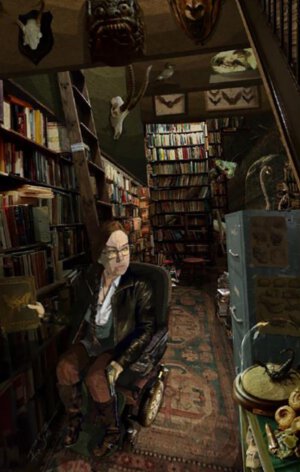
I’ll admit for today’s sensibilities Masks of Nyarlathotep does have some problems but it’s awfully smug for authors, who seemingly have very little experience in published game or scenario design, to decide they’re going to publicly rip on an extremely well received adventure campaign in a game book I’ve just spent my money on. Essentially the authors would like you to know that if you and your friends enjoyed Masks of Nyarlathotep (and inferred in other sections, the Call of Cthulhu RPG) you must be assholes. I don’t find a whole lot of enjoyment with books which tell me I’m an asshole…
Here’s an idea for the authors. How about focusing on creating an interesting game first and let the political agendas and personal diatribes come later? And for the record? While it’s true a great many of the villains the players encounter in Masks of Nyarlathotep are not Caucasian, it’s also true many of the characters’ staunchest and most crucial allies in the campaign are also not Caucasian.
Around half the page count of Lovecraftesque is devoted to material which doesn’t even relate to the game. While mental illness is surely a serious issue, and nothing to ever be taken lightly, Lovecraft certainly isn’t the only author who ever used a hackneyed approach to it in stories. Do we really need about fifteen percent of Lovecraftesque’s total pages taken up by an essay about mental health? I kid you not when I tell you over ten pages are simply Mythos inspired poetry. No joke! There’s even more content padding the book with is fairly irrelevant to an actual game and, along with all the wasted space as nearly every page takes up about fifty percent of what’s available, it’s easy to see how one begins to feel swindled buying what in reality is about maybe sixty full pages of gaming product. That’s a generous estimate too.
I believe the authors felt they had an agenda to pitch and if they could piece mechanics from other games together in a way which resembled an actual RPG, while slapping some form of Lovecraft onto it, why not climb up on the soapbox and maybe make a few bucks while they were at it. In the end, this book is a complete dud. I could have probably looked past the all the over the top politically correct handwringing and sermonizing if the core take away was something fun or interesting to play. In truth, it’s neither fun nor interesting at all so I’ll sum up Lovecrafteque in the same way the authors play on H.P.’s name and say this release is barely even “game-esque.”

SUMMARY
Summary
- Castles & Crusades: Players Handbook Reforged Edition Reviewed - Apr 7, 2025
- Campaign Builder: Dungeons & Ruins Reviewed - Apr 5, 2025
- Space 1999: The Roleplaying Game Receives a Free Quickstart - Apr 4, 2025
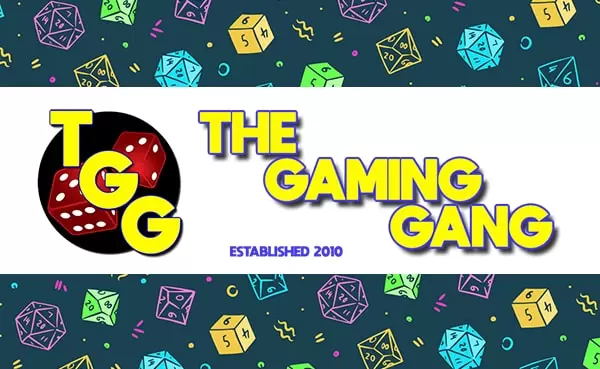






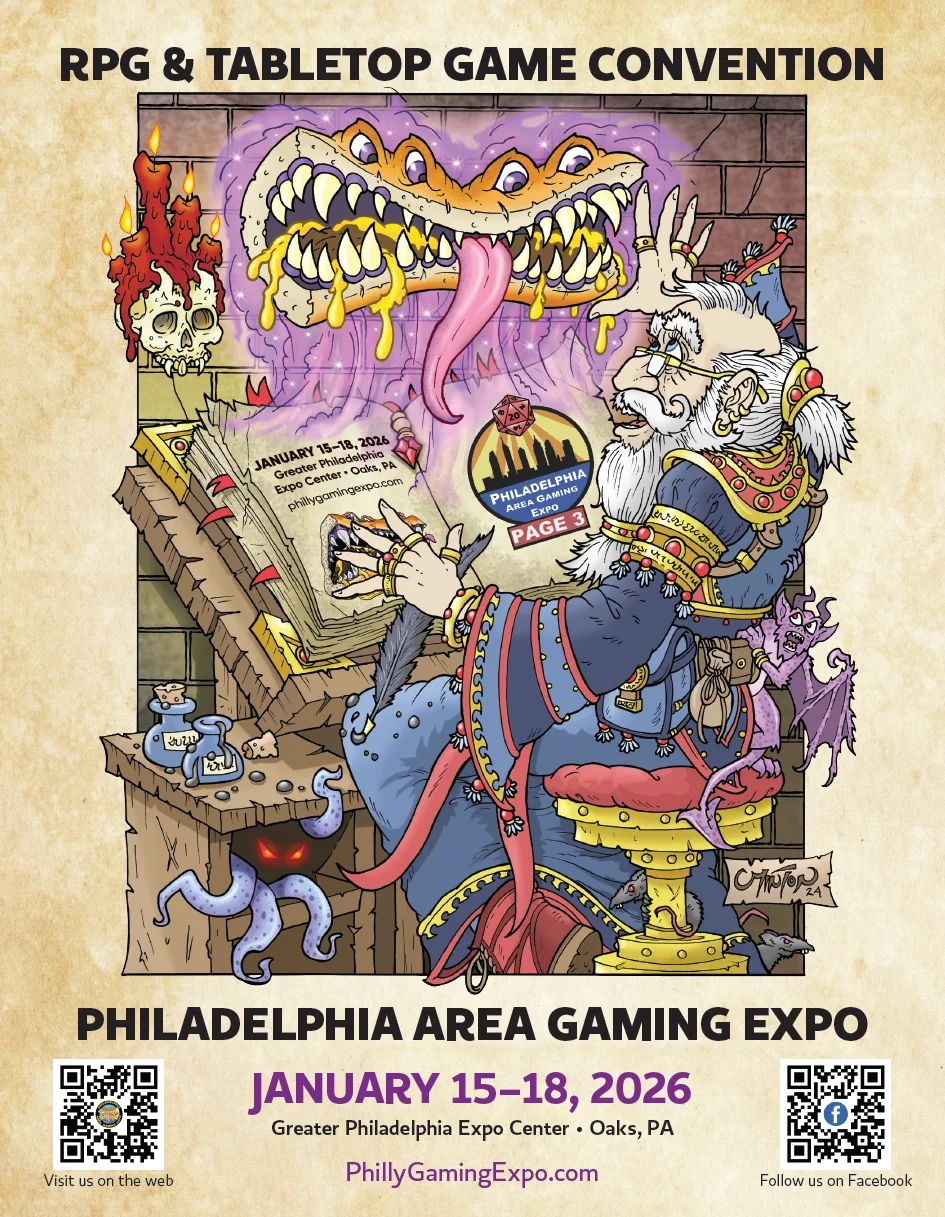




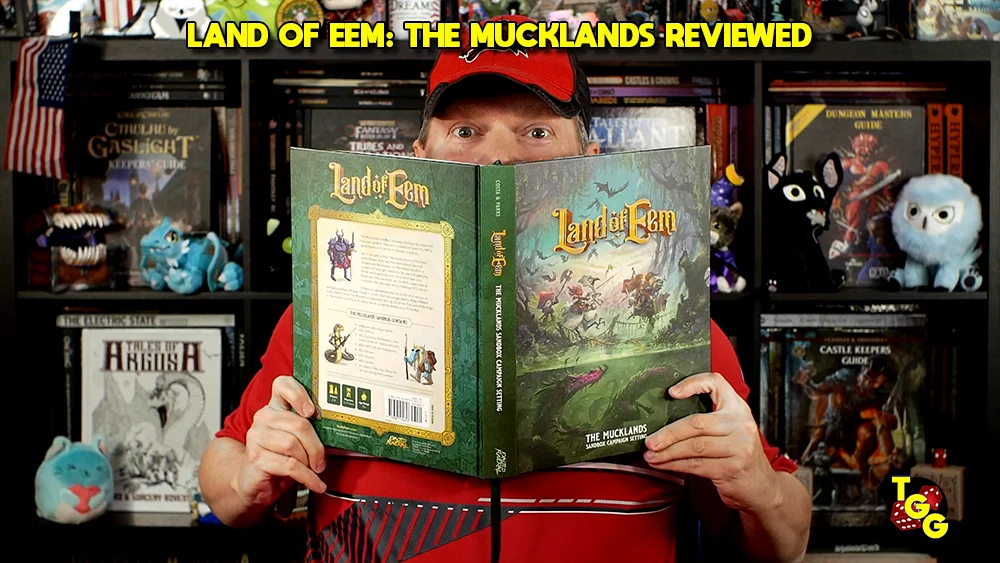
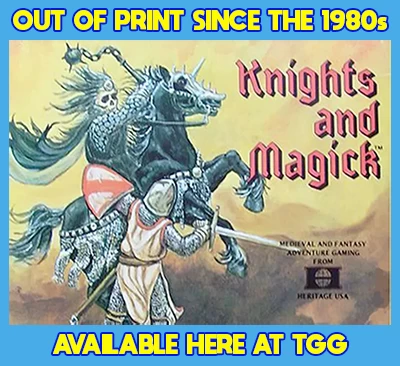



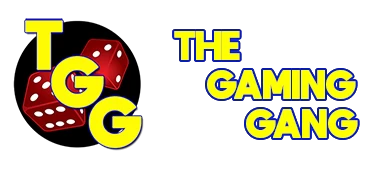
I’m curious as to why you think this game got such good press from Yog-Sototh and The Mary Sue?
I can’t tell you why one person likes something and then someone else doesn’t; all reviews are one opinion anyway. I’m also not in the business of knocking other outlets, especially ones I happen to respect like TheMarySue and Yog-Sothoth. I will say I’m not sure if either of those sites received a finished copy of the game or simply pre-release materials since there might be a quite a lot different in the finished product; another one of the reasons you never see TGG do reviews of anything prior to or during a Kickstarter and we’re always up front we’re writing about or shooting a preview.
I did look at the write up TheMarySue has a minute ago and, in my opinion, it’s not even a review although it’s clearly indicated as one. The writer at TheMarySue spends the entire article discussing what Lovecraftesque is aiming to do as opposed to what the game design actually achieves and one of the game’s authors is continually referenced pitching the concept. I highly doubt the reviewer even played Lovecraftesque before writing the article and her one paragraph summation (which constitutes her *ahem* review) states “Overall, this game is already a valuable contribution to the growing canon of roleplaying games,” which is utterly ridiculous. Thankfully, I see the reviewer only wrote five articles for TheMarySue (one of which sings the praises of Chill Third Edition, which is a steaming pile in reality) because I really dig the site and rarely have I seen that sort of dreck there.
I did just read the review at The Mary Sue and you’re right it’s complete bullshit. I think its an advertisement more than anything and not a review.
As the owner of Yog-Sothoth I have not seen a copy nor did I back the Kickstarter for it.
Thanks for pointing that out Paul. I could have sworn I remember seeing some coverage at Yog-Sothoth but not necessarily a review (that’s why I didn’t point out a YS review) but I must have been mistaken. I will edit the review to make sure the good name of Yog-Sothoth isn’t fouled by association with this horrible game!
🙂 No worries. I’m sure it was probably discussed in the forums by the community. The thing about crowd-funders is that often you never quite know what you’re going to end up with! I haven’t read Lovecraftesque but I can say it wasn’t editorially promoted.
It might of been something in the YS forums I stumbled across. I’m not sure to be honest. As for crowd funding projects, a company has to put something which is damn near the exact thing a backer is going to receive in order to get a sneak peek out of us let alone a review; too many projects over-promise and under-deliver.
Hi,
I both agree & disagree with you. I agree in that I would not want to pay money for a game that devoted a large page count to criticism of previous games in the same genre. I think this type of analysis is more appropriate for a blog post, article, etc. In fact, your review has convinced me not to purchase this product. However, I strongly disagree that the authors’ criticism of the Masks of Nyarlathotep means that they are calling you and others who played Masks “assholes.” It seems like they were merely pointing out racially problematic stereotypes within that product. None of the quoted text included an attack on the morality or goodness of the players (or even the authors, for that matter). You are obviously free to try challenge their criticism, which you begin to do by pointing out potential counter-examples of “good” NPCs of color. My point is that you should not dismiss the authors’ critique just because you are having a defensive response because you imagine that someone is attacking your moral goodness.
Nicely pointed out. The Masks comments in the book just build on many of the smuggly presented SJW “takes” I feel overwhelm the title as a game product; the rip on Masks is simply icing on the cake. It’s one of those things where you might have to read the book (and I’m certainly not encouraging anyone to buy this dreck) to see how the critique of a decades old Chaosium campaign may stick in your craw. As I mentioned in the review, the authors should have been more concerned with creating a good gaming product as opposed to crowing about how superior their new game is to all others.
Good grief! I wish I would have read this before I impulse-bought it at a convention last weekend. I got about forty pages into reading Lovecraftesque before the preachy tone really got under my skin. I doubt that I will finish reading this book, and I very much doubt that I will ever run a session of Lovecraftesque.
Sorry to read you got burned. It seems like your reaction was quite similar to mine as I feel the book is just overloaded with dreck.
You know, I didn’t say it when the review was posted but I’ll say it now: Lovecraftesque is a pointless product ultimately because you can *perfectly well* tell a more PC, SJW, inclusive tale in the Mythos without it. If the authors of this pile of trash really think otherwise, allow me to point them to Chaosium’s Harlem Unbound (which has a way better discussion of how to handle racism with player characters, even if it still gets under my skin just a bit) or to the book The Ballad of Black Tom from the same year as this Roleplaying “Game” supplement.
The game pretty much copies a storytelling card game released about the same time, by the name of Mythos Tales I think. The difference here is the rules are unncessarily long when they could have easily fit in a small leaflet. The rest of the book seems to be a lecture on inclusiveness, which has a somewhat condescending tone too.